This article was medically reviewed by Alina Lane, DDS. Dr. Alina Lane is a Dentist who runs All Smiles Dentistry, a general practice dental office based in New York City. After completing a DDS at the University of Maryland, Dr. Lane completed a year-long clerkship in Implantology at the University of Maryland, where she focused on the advanced restoration of dental implants. She continued her advanced education by completing a General Practice Residency at Woodhull Medical Center, an affiliate of the NYU School of Medicine. She received the Woodhull Medical Center Resident of the Year 2012-2013.
There are 20 references cited in this article, which can be found at the bottom of the page.
wikiHow marks an article as reader-approved once it receives enough positive feedback. In this case, several readers have written to tell us that this article was helpful to them, earning it our reader-approved status.
This article has been viewed 173,717 times.
Steps
Keeping your Teeth Strong with Good Dental Hygiene
-
1Brush for at least two minutes.[3] Do this in the morning and at night before you go to sleep. [4] The most important thing in maintaining a good oral hygiene is to adopt the correct brushing technique. Ask your dentist or hygienist to teach you how to correctly use the toothbrush and how to apply it to your gums and teeth.
- Brush with a soft bristled brush or an electric toothbrush. Brush all the surfaces of each tooth, including the chewing surface, the back and the front.
- Replace your toothbrush every three months. If you use an electric toothbrush, you should also replace the head every three months.
- It also never hurts to brush your teeth in the middle of the day.
- Wait about 30 minutes after eating before brushing your teeth. After you eat, the acid produced by the food in your mouth causes your enamel to soften. Immediately after eating you can rinse your mouth with water, then after 30 minutes, you can brush.
- Children should brush their baby teeth both to prevent cavities and to learn good oral hygiene habits.[5]
-
2Protect your teeth against decay by using a toothpaste with fluoride. Fluoride strengthens the enamel coating on your teeth, making it less vulnerable to decay.[6] Ideally, the toothpaste should have 1,350–1,500 ppm of fluoride in it. This is safe for children as long as an adult supervises them to make sure they don’t eat it.[7]
- If you use a lower strength toothpaste for a young child, make sure it has at least 1,000 ppm of fluoride. If it is lower, it won’t have enough to prevent tooth decay.
- Use a pea-sized amount on the toothbrush. When you are finished brushing, spit it out. You can rinse your mouth with water, but only briefly. You don’t want to wash away all the fluoride!
Advertisement -
3Prevent tooth decay from occurring between your teeth by flossing.[8] Flossing will remove food particles, plaque, and bacteria that might be hiding between your teeth where the bristles of your brush can’t reach them.[9]
- Use about a foot-and-a-half of floss. Wind it around one finger of your dominant hand and one finger of your non-dominant hand. Then, with your dominant hand, insert the floss between your teeth and curve the floss around one of the teeth. Rub up and down, including going gently below the gum line. Then curve it around the other tooth and repeat. Use a mirror to help you see what you are doing.
- Floss at least once per day. If you find the floss difficult to handle, you can use an interdental cleaner which has a small handle with a brush, pick, or stick that helps you get between your teeth.[10]
- If you floss before brushing, this will help the fluoride in your toothpaste get between your teeth and provide antibacterial protection.
-
4Use mouthwash. You can reduce the amount of bacteria floating around your mouth by rinsing with an antibacterial mouthwash or salt solution. If you use a mouthwash, look for one with fluoride in it.[11]
- A good mouthwash should also have chlorhexidine in a small concentration, such as 0.02%. Avoid products that contain alcohol
- To make a salt solution, dissolve salt into a cup of warm water. As you add salt, taste it to make sure it isn't so salty that you won't be able to stand it.[12] If it's too salty, add more water.
- Swish the mouthwash or salt solution in your mouth for about two minutes. Move it around as much as possible so that it will coat all areas of your teeth. Then tip your head back and gargle. Spit the mixture out afterwards. Don’t swallow it. Gargling might not be appropriate for children who are too young to safely do so without choking.
-
5Scrape bacteria off your tongue with a scraper or by brushing it. The roughness of your tongue traps food particles and bacteria, which may contribute to tooth decay.
- Don't press so hard it hurts or bleeds. You should be able to see a film of saliva and debris on the scraper by just moving it gently. Go from back to front.
- Some toothbrushes have tongue scrapers on the back of them. Look to see if yours has a rough little pad.
-
6
Eating a Healthy Diet for Healthy Teeth
-
1Reduce your sugar intake.[14] When the bacteria in your mouth break down sugars, it produces acids which dissolve the protective enamel coating on your teeth. This makes your teeth more vulnerable to decay.[15] You can limit you sugar intake by:[16]
- Not eating desserts like candy, chocolate, cakes, ice cream, pastries
- Not adding sugar to your tea or coffee
- Eating low sugar breakfast cereals
- Avoiding sugary sodas and soft drinks
- Drinking only one glass of fruit juice per day. Even unsweetened fruit juice is sugary.
-
2Avoid drinks that stain your teeth. The following food are very common causes of yellow, unhealthy looking teeth:[17]
- Wine
- Tea
- Coffee
-
3Cut down your alcohol consumption. Alcohol wears away the protective enamel coating on your teeth. Prolonged consumption of high amounts can lead to cavities and tissue dehydration, making the the tissue in your mouth weaker and more vulnerable to bacterial aggression.[18]
- People who both drink and smoke are at a higher risk of mouth cancers.
-
4Eat extra crunchy, raw fruits and vegetables. These foods will help scrape your teeth clean as you eat them. And they are good for you! Options include:[19]
- Apples
- Celery
- Carrots
- Peppers
- Cucumbers
- Lettuce
- Broccoli
-
5Reduce the amounts of sticky foods you eat. They are more likely to leave sugary films that will lead to tooth decay between your teeth. Examples include:
- Granola bars
- Dried fruit like raisins
- Gummy candies or taffies
-
6Limit the amount of highly acidic foods and drinks you consume. Acid can dissolve the enamel on your teeth and make the more vulnerable to decay. Highly acidic foods and drinks include:[20]
- Orange juice
- Grape fruit juice
- Lemons
- Pickles
- Cola
- Wine
- Vinegar salad dressings
-
7Drink extra water. Water will help prevent food from getting stuck in your teeth.[21]
- If your mouth is dry, you are probably not drinking enough water. The quantity of water you need will vary daily based on the weather, your activity level, and the proper functioning of your salivary glands.
- The first sign of dehydration is thirst. So if you are thirsty, help yourself to a tall glass of water.
-
8Chew sugar-free gum after eating. Gum will make the saliva flow, which will help breakdown any remaining pieces of food.[22] [23]
- It is important that the gum be sugar-free, otherwise you are coating your teeth in sugar and increasing the chances of tooth decay.
- Sugar-free gums are widely available at local grocery stores and drug stores.
Visiting the Dentist
-
1Go to a dentist if you notice symptoms suggesting that you are having problems with your teeth. At the early stages, it might not hurt, so it may be tempting to put off going to the dentist. But once the problem is more severe, it will be harder to treat. Schedule a cleaning and dental exam if you have:[24]
- Red, swollen, or painful gums
- Bleeding when you brush and floss
- Gums that are contracting away from your teeth
- Permanent teeth that are loose
- Sensitivity to the temperature of your food
- Bad breath or a strange taste in your mouth that doesn’t go away
- Pain
- Swelling in your jaw
- Headaches
-
2
-
3Get a professional teeth cleaning. It is best to get your teeth cleaned and get an exam every six months. Children should start seeing a dentist as soon as they begin getting baby teeth. Your dentist or hygienist will:[27]
- Thoroughly clean your teeth
- Removing any of the hard plaques that often develop in hard to clean places
- Check to make sure you are not developing any cavities
- Check the health of your gums
- Show you the proper technique for brushing and flossing
-
4Talk to your dentist about protective treatments for your teeth. Two common and effective ones are fluoride varnish and fissure sealants. Both are suitable for adults and children.[28]
- Fluoride varnish is a treatment where a strong fluoride is applied to the teeth to make the enamel stronger and less vulnerable to decay. This can be done every six months on both baby and permanent teeth.
- A fissure sealant is a plastic or resin-based composite coating that is applied to the crevices of the teeth to protect them from bacteria and food that might get stuck in them. This is applied to permanent teeth and can last up to 10 years.
-
5Find affordable dental care. Dental care can be expensive and many health insurance plans may not cover it. You can look for low cost dental care by:
- Contacting dentistry and dental hygiene schools to see if they offer low cost treatment to help students get experience. This will be supervised by an experienced dentist or hygienist. You can search online at the websites of organizations like the American Dental Association or the American Dental Hygienists Association.
- Calling or searching the websites of your community health center, county or state health department, and the US Health Resources and Services Administration to find clinics in your area that charge based on income.
- Contacting health organizations like United Way. You can dial 211 in the US to reach your local United Way organization.
Expert Q&A
-
QuestionHow can I strengthen my teeth naturally?
 Joseph Whitehouse, MA, DDSDr. Joseph Whitehouse is a board certified Dentist and the Former President of the World Congress on Minimally Invasive Dentistry (WCMID). Based in Castro Valley, California, Dr. Whitehouse has over 46 years of dental experience and counseling experience. He has held fellowships with the International Congress of Oral Implantology and with the WCMID. Published over 20 times in medical journals, Dr. Whitehouse's research is focused on mitigating fear and apprehension patients associate with dental care. Dr. Whitehouse earned a DDS from the University of Iowa in 1970. He also earned an MA in Counseling Psychology from California State University Hayward in 1988.
Joseph Whitehouse, MA, DDSDr. Joseph Whitehouse is a board certified Dentist and the Former President of the World Congress on Minimally Invasive Dentistry (WCMID). Based in Castro Valley, California, Dr. Whitehouse has over 46 years of dental experience and counseling experience. He has held fellowships with the International Congress of Oral Implantology and with the WCMID. Published over 20 times in medical journals, Dr. Whitehouse's research is focused on mitigating fear and apprehension patients associate with dental care. Dr. Whitehouse earned a DDS from the University of Iowa in 1970. He also earned an MA in Counseling Psychology from California State University Hayward in 1988.
Board Certified Dentist The obvious answer is that you need to brush your teeth and floss every day. Still, if you're looking for lifestyle changes that will keep your teeth strong, the best thing you can do is stop smoking if you're a smoker. In addition to that, cut back on sugary drinks and avoid them whenever possible. Don't use toothpicks to poke at your gums and see your dentist regularly to get checkups and cleanings.
The obvious answer is that you need to brush your teeth and floss every day. Still, if you're looking for lifestyle changes that will keep your teeth strong, the best thing you can do is stop smoking if you're a smoker. In addition to that, cut back on sugary drinks and avoid them whenever possible. Don't use toothpicks to poke at your gums and see your dentist regularly to get checkups and cleanings.
References
- ↑ https://dentistry.uic.edu/news-stories/the-best-foods-for-a-healthy-smile-and-whole-body/
- ↑ http://www.nhs.uk/Livewell/dentalhealth/Pages/Keepteethhealthy.aspx
- ↑ Alina Lane, DDS. Board Certified Dentist. Expert Interview. 21 April 2020.
- ↑ https://medlineplus.gov/ency/article/001957.htm
- ↑ http://www.nhs.uk/Livewell/dentalhealth/Pages/Careofkidsteeth.aspx
- ↑ Joseph Whitehouse, MA, DDS. Board Certified Dentist. Expert Interview. 9 April 2020.
- ↑ http://www.nhs.uk/Livewell/dentalhealth/Pages/Careofkidsteeth.aspx
- ↑ Alina Lane, DDS. Board Certified Dentist. Expert Interview. 21 April 2020.
- ↑ https://kidshealth.org/en/teens/teeth.html
- ↑ Joseph Whitehouse, MA, DDS. Board Certified Dentist. Expert Interview. 9 April 2020.
- ↑ https://www.ada.org/resources/research/science-and-research-institute/oral-health-topics/mouthrinse-mouthwash
- ↑ https://www.guardiandirect.com/dental-care/how-saltwater-rinse-improve-your-oral-health
- ↑ Joseph Whitehouse, MA, DDS. Board Certified Dentist. Expert Interview. 9 April 2020.
- ↑ Alina Lane, DDS. Board Certified Dentist. Expert Interview. 21 April 2020.
- ↑ https://www.dentalhealth.org/tell-me-about/topic/sundry/diet
- ↑ https://www.dentalone-ga.com/locations/marietta/why-sugar-is-bad-for-your-teeth-and-health/
- ↑ http://www.nhs.uk/Livewell/dentalhealth/Pages/Keepteethhealthy.aspx
- ↑ https://www.dentalhealth.org/drugs-alcohol-and-your-oral-health
- ↑ http://www.foodmatters.tv/articles-1/7-natural-remedies-for-bad-breath
- ↑ https://www.dentalhealth.org/tell-me-about/topic/sundry/diet
- ↑ https://www.mouthhealthy.org/en/nutrition/food-tips/water-best-beverage
- ↑ http://www.nhs.uk/Conditions/Bad-breath/Pages/Treatment.aspx
- ↑ https://www.dentalhealth.org/tell-me-about/topic/sundry/diet
- ↑ https://my.clevelandclinic.org/health/treatments/11187-dental-check-up
- ↑ https://www.nlm.nih.gov/medlineplus/ency/article/003058.htm
- ↑ https://medlineplus.gov/toothdisorders.html
- ↑ https://www.dentalcare.com/en-us/patient-education/patient-materials/why-are-regular-dental-visits-important
- ↑ http://www.nhs.uk/Livewell/dentalhealth/Pages/Careofkidsteeth.aspx
About This Article
To keep your teeth healthy and strong, make sure your brush them for at least 2 minutes each morning and before you go to bed. You should also brush your tongue to get rid of any extra bacteria that can transfer to your teeth and cause decay. When you buy toothpaste, look for one with fluoride, which strengthens the enamel coating on your teeth. It's best to also floss at least once a day to get rid of any food particles and bacteria stuck between your teeth. In addition to keeping your teeth clean, try to cut down on sugary foods and drinks, like candy, chocolate, soda, and ice cream, which dissolve the enamel coating on your teeth. For more tips from our Dental co-author, including how to find affordable dental care, read on!
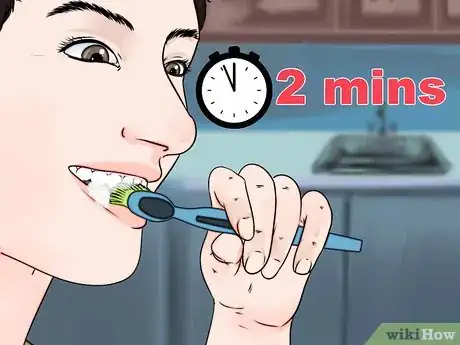

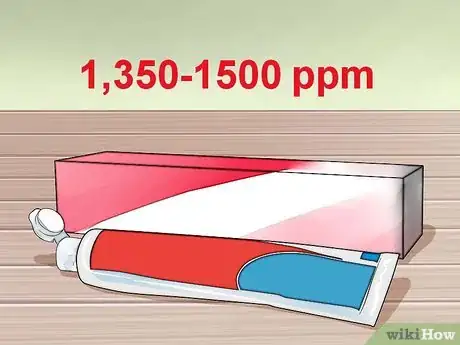

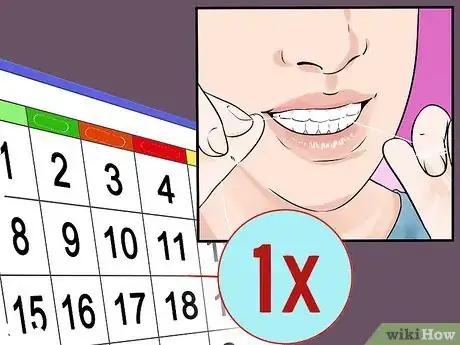
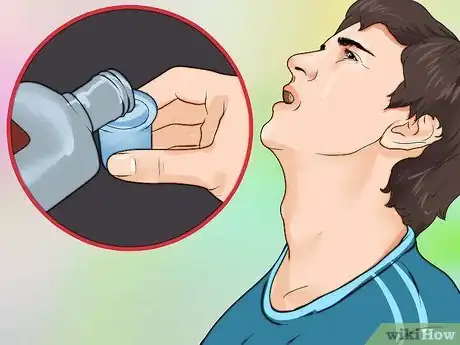
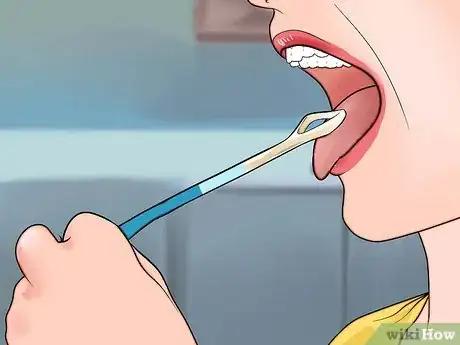
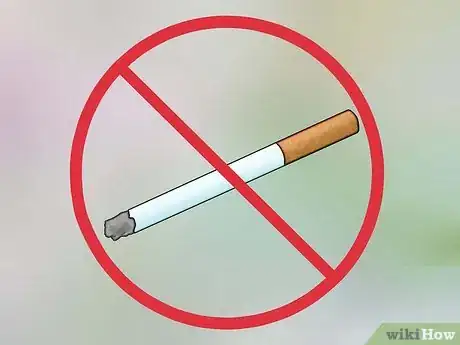
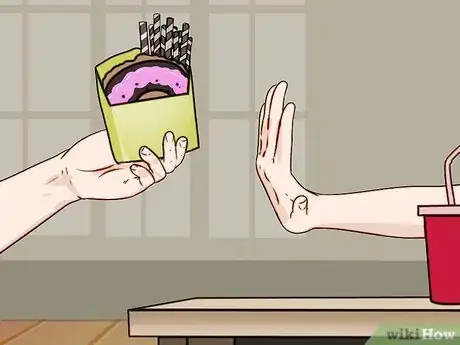
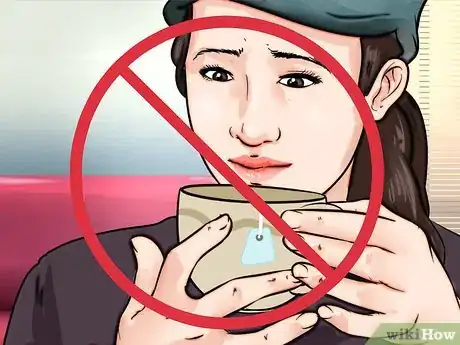
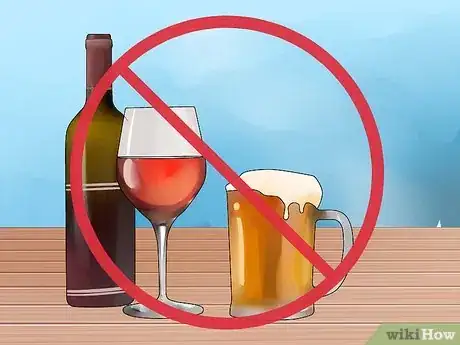

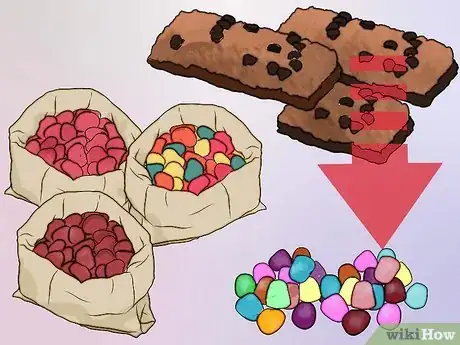
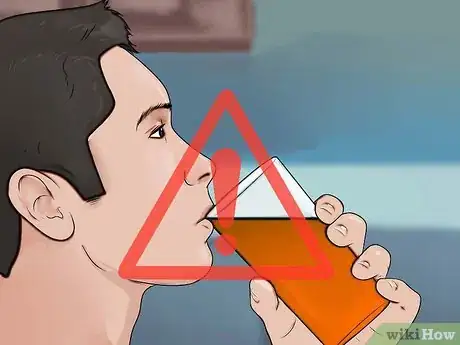

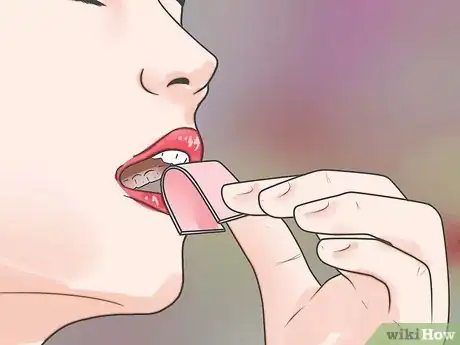
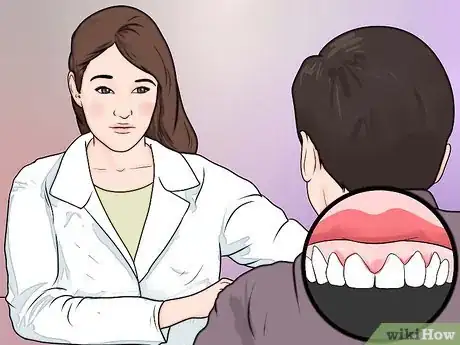
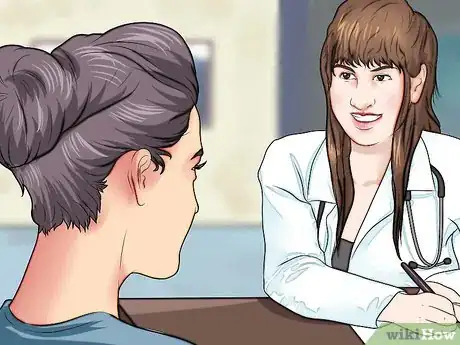
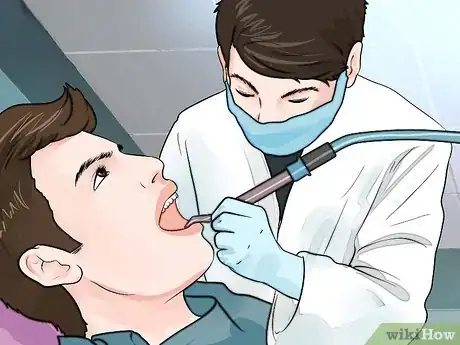
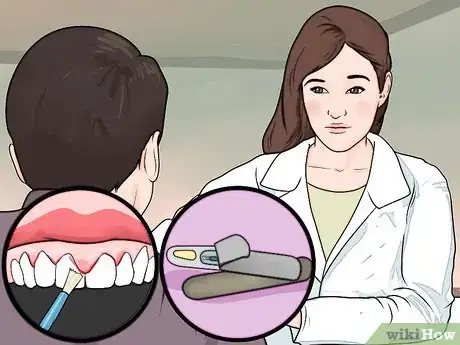
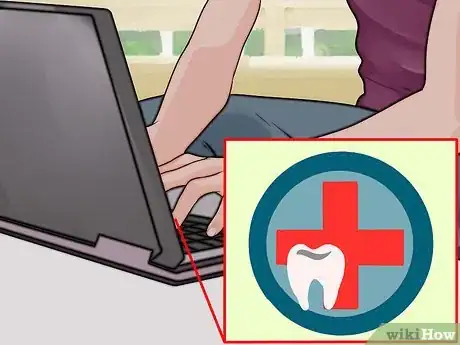
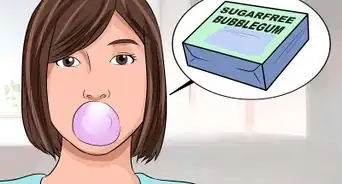
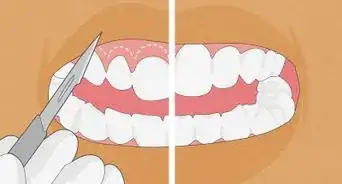
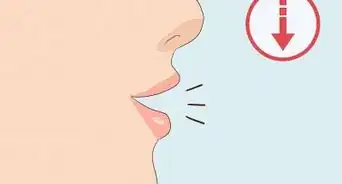
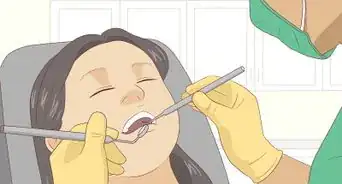
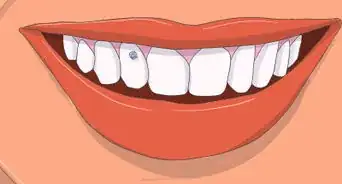
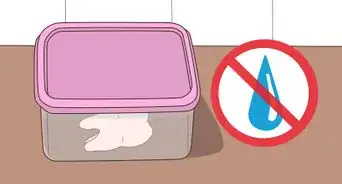
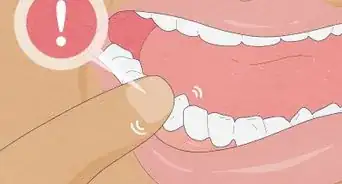
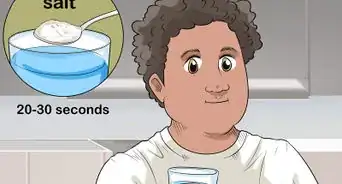

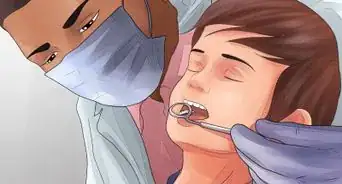
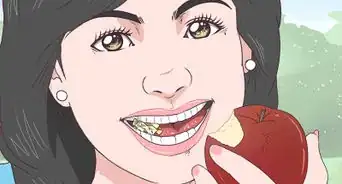


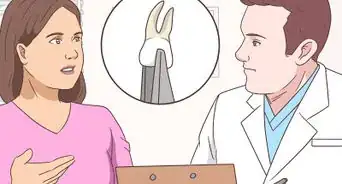










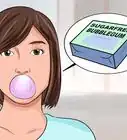
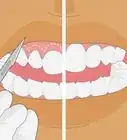
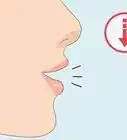
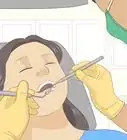



































Medical Disclaimer
The content of this article is not intended to be a substitute for professional medical advice, examination, diagnosis, or treatment. You should always contact your doctor or other qualified healthcare professional before starting, changing, or stopping any kind of health treatment.
Read More...